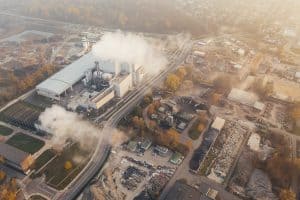As the world intensifies its efforts to combat climate change, carbon capture, utilization, and storage (CCUS) has emerged as a critical technology to achieve net-zero emissions. This transformative approach captures carbon dioxide (CO₂) emissions from industrial processes and power generation, preventing them from entering the atmosphere. For businesses, governments, and investors, the case for investing in carbon capture is becoming increasingly compelling—not only as a climate solution but also as a strategic opportunity for innovation and economic growth.
Here’s why carbon capture deserves your attention and investment, with a spotlight on its growing application in the refining sector.
Addressing the Carbon Challenge
Global industries account for a significant portion of CO₂ emissions, with sectors like refining, cement, and steel production among the largest contributors. As pressure mounts to reduce emissions, carbon capture provides a pathway to decarbonize these hard-to-abate industries without compromising productivity or operational efficiency.
Carbon capture technologies align with international climate goals, such as the Paris Agreement, and offer a means for industries to achieve compliance with increasingly stringent emissions regulations.
The Business Case for Carbon Capture
Investing in carbon capture goes beyond environmental responsibility; it also makes strong business sense for several reasons. Governments worldwide are now introducing policies and carbon pricing mechanisms that reward low-carbon operations and penalize heavy emitters, so it makes sense for businesses to embrace this. If you do so early, you could position yourself as a leader in sustainability, enhancing your reputation and attracting eco-conscious consumers and partners.
Carbon Capture for Refineries
Refineries are at the forefront of industries benefiting from carbon capture technology. As one of the largest sources of industrial CO₂ emissions, refineries face significant challenges in meeting decarbonization targets. CO2 capture solutions tailored for refineries can help address these challenges by:
- Reducing Emissions: Capturing CO₂ directly from refining processes and preventing it from being released into the atmosphere.
- Enhancing Operational Efficiency: Advanced carbon capture systems are designed to integrate seamlessly with existing operations, minimizing disruptions.
- Improving Economic Viability: By capturing and utilizing CO₂, refineries can generate additional revenue streams and offset the costs of implementing these technologies.
A Technology Ready for Scale
Thanks to advancements in technology and reductions in costs, carbon capture is now more accessible than ever. Modular and high-efficiency systems are making it possible for businesses of all sizes to adopt CCUS technology. As adoption grows, economies of scale are expected to drive further cost reductions, making carbon capture an even more attractive investment.
Carbon Capture Use for a Sustainable Future
Carbon capture is not a silver bullet but a vital component of a broader strategy to combat climate change. When combined with renewable energy, energy efficiency, and reforestation efforts, CCUS can help bridge the gap between current emissions levels and the global goal of achieving net-zero emissions by mid-century.
The need to invest in carbon capture is clear: it’s a win-win for the planet and the economy. By adopting this technology, industries can reduce emissions, comply with regulations, and capitalize on emerging opportunities in the low-carbon economy.




